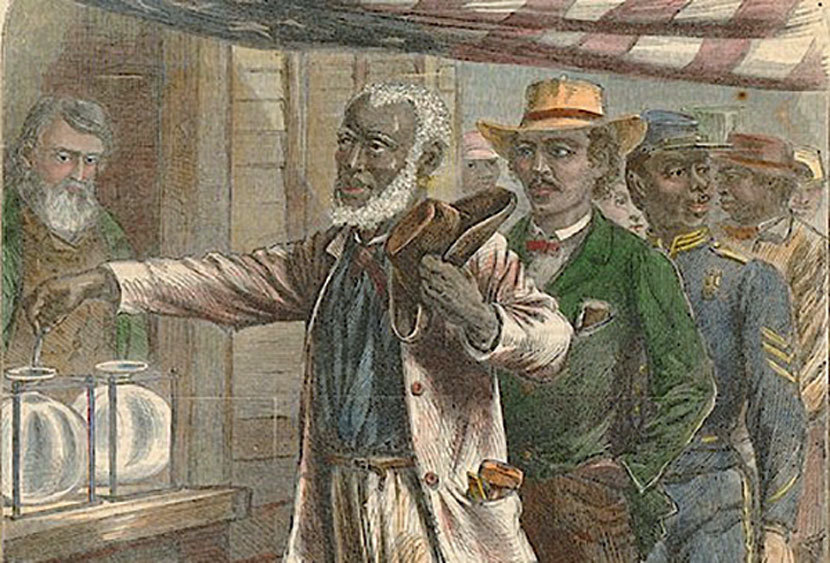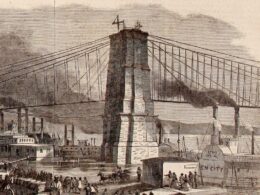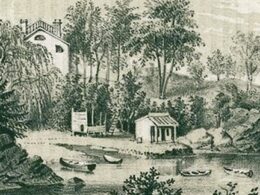Frederick Douglass (1818–1895)
From Reconstruction: Voices from America’s First Great Struggle for Racial Equality

150 years ago this summer, Frederick Douglass was crisscrossing the country, stumping on the campaign trail for Republican presidential candidate Ulysses S. Grant.
The 1868 presidential election was the first in which African Americans voted in significant numbers. The effect was decisive. “Although Grant won easily in the electoral college vote, his popular majority was made possible through the votes of black Americans,” writes Brooks D. Simpson. “More whites voted for [Democratic candidate Horatio] Seymour than voted for Grant.”
For Douglass, there was never any question about whom to support. After the election, Grant advocated for the passage of the Fifteenth Amendment, which would guarantee the right to vote to all male citizens, regardless of race. “A measure which makes at once 4,000,000 people voters who were heretofore declared by the highest tribunal in the land not citizens of the United States,” he declared, “is indeed a measure of grander importance than any other one act of the kind from the foundation of our free Government to the present day.” The Amendment was ratified in 1870.
For our Story of the Week selection, then, we present Frederick Douglass’s stump speech, with a short introduction describing the actions by Andrew Johnson and the Democrats which pushed Douglass permanently to the Republican Party.



